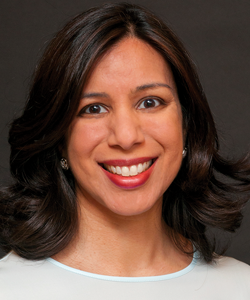According to published research, the number of adults with congenital heart disease (CHD) has increased dramatically over the past few decades, with many people now living into the geriatric age range. This improved longevity has led to greater use of various types of care from the medical system. “As adults with CHD live longer, healthcare providers need to be better prepared to diagnose, follow up, and treat this patient group,” says Ami B. Bhatt, MD. “The key challenge lies in training physicians to be equipped to manage this population.”
A Welcome Scientific Statement
The American Heart Association (AHA) has developed a scientific statement that focuses on adults older than age 40 with CHD. Published in Circulation, the statement is designed to be complementary to the 2008 American College of Cardiology (ACC)/AHA guidelines for adults with CHD. It provides information on the natural history of CHD, ramifications of childhood procedures to repair CHD, and late initial diagnoses of the disease in older adults.
“Older adults with CHD are unique and distinct from pediatric and younger adult populations with CHD,” says Dr. Bhatt, who was lead author of the AHA scientific statement. The population of older adults with CHD is complex in that they encompass a broad range of presentations. There are people who are diagnosed for the first time in adulthood while others have previously received palliative repair and might have consequences from these procedures. Some experience new sequelae many years after childhood surgical repairs or have residual lesions with delayed presentation.
Seek Specialty Care
“Many older patients who have been treated for CHD in the past have a sense that their heart is better and believe they don’t require follow-up,” Dr. Bhatt says. “However, complications can arise from underlying disease or the procedures that patients underwent as children. Therefore, it’s imperative that these patients recognize the importance of lifelong cardiovascular care. One critical theme throughout the AHA statement is the need for involving experts in CHD when caring for adults with these diseases.”
In addition to being followed by CHD and cardiac specialists, the AHA recommends that adults with CHD keep records of their childhood diagnoses and procedures and then pass this information along to their physicians. Patients should be proactively engaged to ensure that their healthcare providers understand their disease. Dr. Bhatt adds that seeking other expert consultations is warranted if patients feel they are not receiving the care they need.
Other Key Themes
Adult complications of various types of CHD and their treatment include a higher risk of heart failure, valvular problems, pulmonary hypertension, and arrhythmias. People with CHD may also develop acquired heart disease. “Physicians are recommended to pay attention to controlling heart disease risk factors, including obesity, dyslipidemia, diabetes, blood pressure, smoking, and sedentary lifestyles,” Dr. Bhatt says. This patient education should not take a back seat to managing the congenital medical history.
Prevention is a key issue addressed in the scientific statement, and specific recommendations are provided throughout the document. The AHA scientific statement also provides important guidance for clinicians who are managing adults with CHD with regard to physical and sexual activity as well as other quality-of-life issues (Table).
Importantly, the AHA statement emphasizes screening for and addressing multisystem disease including lung, liver, and kidney disease as well as cancer. The importance of these non-cardiac issues that may arise in older adults with CHD is discussed in detail in the statement.
Sections of the AHA statement addresses both CHD-related complications in older adults that can affect all patients, regardless of the underlying CHD diagnosis as well as complications relating to specific types of CHD and repairs. Collecting information on the whole patient is necessary so that pediatric cardiologists and surgeons can find ways to improve longevity and long-term quality of life for patients.
More Research Needed
There are relatively few data available to help with decisions regarding the diagnosis, prognosis, and management of adults with CHD. “While much progress has been made for treating CHD and improving survival, older adults with CHD are a group of patients that are not as well understood as others,” says Dr. Bhatt.
The authors of the AHA statement note that developing patient registries and conducting larger studies may help improve understanding of this patient group and enhance care and outcomes. The statement can serve as a foundation for the care of older adults with CHD and help guide the design of trials to better inform future versions of the document. “The key is to ensure that our management strategies continue to evolve along with this population of patients,” Dr. Bhatt says.



 PWeekly
PWeekly